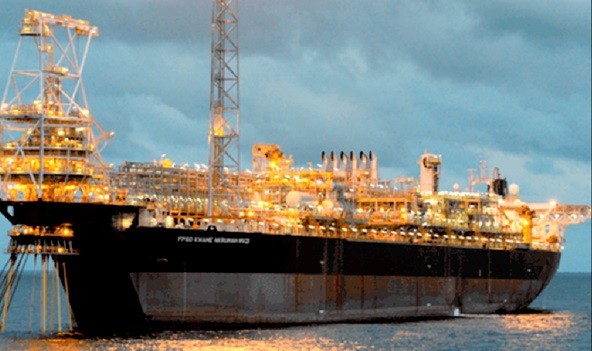
Scrap taxes on explorations — Chamber of Mines
The Chamber of Mines executive has called on the government to exempt exploration companies from the payment of taxes to reduce the risk and high cost of mining explorations.
Advertisement
That would help to reduce the barriers to exploration companies seeking to enter the mining industry which constitutes Foreign Direct Investment for the country.
At an Editors Forum in Accra, the President of the Chamber, Joshua Mortoti, said the cost of holding land by exploration purposes, among other costs, induced stress on many of the exploration firms in addition to the different types of taxes they paid.
Mr Mortoti said aside from mining explorations being risky, the probability of making a commercial find was also low, hence the need to remove the taxes to make exploration less burdensome.
He pointed out that mining exploration was very expensive, yet it was quite uncertain that the investor would make any commercial find.
“But we have a fiscal regime which requires companies to make some payments even before digging the ground and that is the challenge that we have,” he pointed out.
Fiscal regime
Under the current fiscal regime, exploration companies that come to the country for mining expedition are required to pay taxes even before making a commercial find.
To buttress his point and also paint a clearer picture of the impact on exploration firms, Ing Mortoti said if an exploration firm brought in capital of $10 million, about 22 per cent would go into paying taxes and levies even before they made a commercial find, a situation which he described as worrying.
“We need to lower the barrier to entry for exploration because it serves our interest as a country”.
“Ideally, we should do the exploration ourselves before we invite exploration firms to come and mine but because the resources are not there, we do it the other way round”.
“When companies outsource drilling services, it comes with Value Added Tax (VAT). When they outsource assaying services, they also pay VAT on them and we believe this is not too good for exploration,” the Chief Executive of the Ghana Chamber of Mines, explained.
Dr Koney recommended that after firms had made a commercial find, the government could now negotiate with the exploration company to consider taxes and the next steps towards mining and production.
If no mining
Responding to questions on the contribution of mining to the economic development of the country, Dr Koney pointed to the sector’s fiscal payment of taxes, which according to the Ghana Revenue Authority (GRA), contributed GH¢6.82 billion, together with the quarrying sub-sector, including dividend payment of GH¢435 million in 2022.
The minerals sector also consolidated its position as the country's largest source of foreign exchange in 2022.
Data from the Bank of Ghana also show that revenue from the export of minerals accounted for 39 per cent of gross merchandise receipts, exceeding the outturns of crude oil, cocoa and other export commodities.
The Chamber of Mines executive stated that the country would have lost $1.41 billion in mineral export revenue routed through the Bank of Ghana and 2.73b that passes through the commercial banks.
This foreign exchange helps to boost the country’s reserves.
Royalties
Mr Koney said years after the passage of the Minerals Development Fund (MDF) Act, 2016 (Act 912), the government was yet to fully implement the law that provided the legal basis for the disbursement and management of ceded royalties received from mining companies.
He noted that although the law required that any person or organisation that received revenue on behalf of MDF was required within one business day to remit the money to the MDF, that had not been the case, saying: “Even from the get-go, the collection is a problem”.
Local content
Dr Koney also pointed out that the country was doing extremely well with regard to local content in the mining industry.
Advertisement
He said local content was one of the things that the chamber had been vigorously pushing for in the last few years.
“We recently launched the standards for electric cables and the chamber devoted resources into developing local standard for electric cables which are produced by local cable manufacturing firms and supplied to the mining industry,” Dr Koney explained.
That was to help boost the capacity of the local manufacturers not only in terms of production, but standards and quality, he added.
The Chief Executive of the chamber said last year alone, mining companies spent $2.81 billion on goods and services sourced from producers and suppliers within the country, $43.30 million on corporate social investments, $1.4 billion on taxes, levies and duties, and $678 million on salaries and emoluments of employees.
Advertisement




